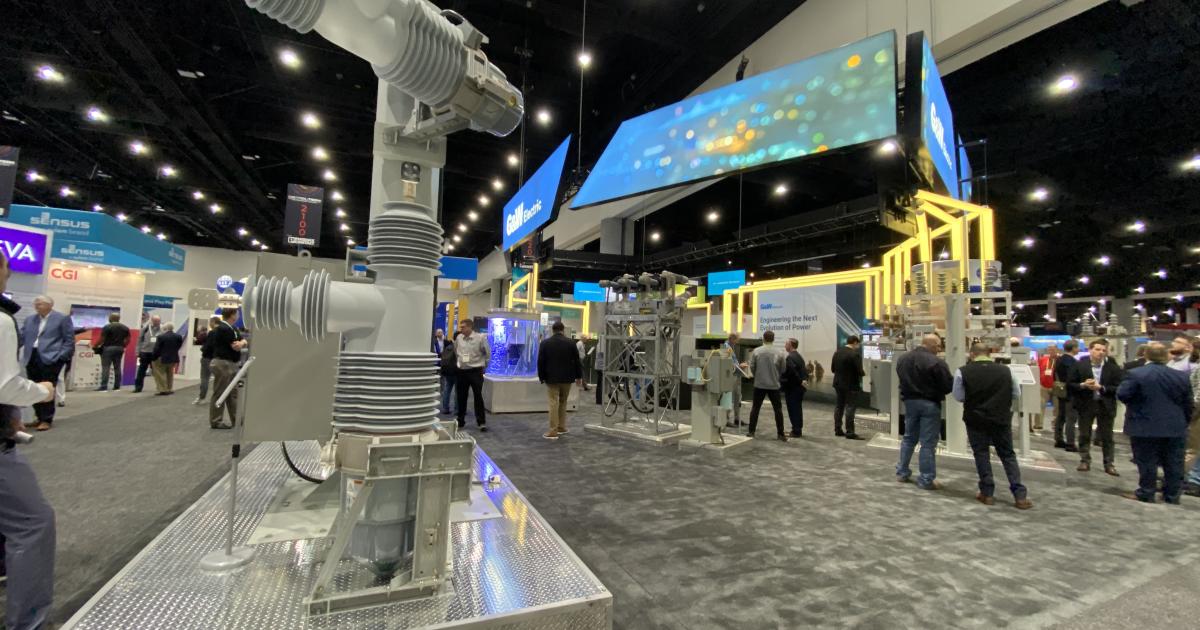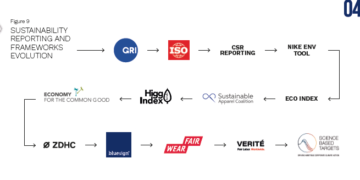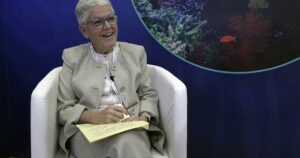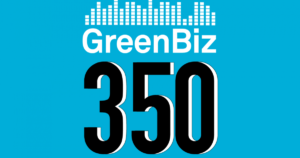
AI is in the air.
I’m not able to open a social media app or newsletter without being reminded of the AI revolution. For the first time, it seems, the masses are understanding how AI and machine learning will change everything.
Last week was the foremost utility trade show in the U.S. descended on the San Diego Convention Center — DISTRIBUTECH. AI-powered technologies were scattered across the expo hall, touting new applications for energy and data management.
As I met with experts of different companies, I posed the question: How will AI change the future of clean energy? Here’s what I heard.
Integrate distributed energy resources
“I think AI is the answer that we’ve been waiting for to make clean energy sing. If you think about a distributed future, where we have renewables and the grid coexisting with the buildings and the load, the only way we can really manage that is with AI. Humans should be taken out of the equation. We can do better interaction than manually turning on and making these loads work amongst themselves.”
— Deepinder Singh, CEO of 75F, an IoT-based building management system to drive healthy buildings and energy efficiency
Help us understand the return of investments on DERs
“It’s going to be a catalyst to accelerate progress towards decarbonization goals by unlocking or expanding the value of data. It’s not just about getting data, but how do you expand the value of data to attach ROI opportunities in the earliest stage for commercial organizations that want to make progress towards their goals? So no longer do you have to worry about CapEx [capital expenditures] or an upfront cost, you can unlock that value utilizing AI and digital solutions to drive real, tangible progress within an organization.”
— Jeremy Cook, director, Energy Transition Solutions at Veritone, a company working to bring AI technology to the energy, utilities and solar marketplace.
Encourage more diversity in the energy sector
“First and foremost, I am passionate about people. I think AI is going to help us change the mindset within our industry and bring forward more diverse-thinking folks to this space. It’s going to pull a different set of people that are not the norm here, not the conformity that we normally see.”
— Nedra Hurley, vice president Utility Sales East Region at ABB, a technology multinational with an emphasis on electrification and automation
Help us reach answers faster
“I think it’s going to make the transition easier, more straightforward. It will give us the ability to take technologies that work, make them work better, and help accelerate things so that we don’t have to wait and study things forever.”
— Don Wingate, vice president sales, microgrid solutions and strategic partners at Schneider Electric, a multinational energy service provider
Anticipate energy demands
“The more data that we have, the more that you can amalgamate, the more you can predict patterns and kind of anticipate ahead. Being able to anticipate can mean a lot when you’re running really big power systems. When you’re dealing with tens of thousands of data points, that amalgamation of learning can be significant. I’m still wondering whether or not it’s ever going to be smart enough to figure out what you’re going to do next in your home with your energy. And I wish we could use AI to figure that out because I can make a much more effective power system if we can do that. And maybe we’ll get there someday.”
— Rob Bennett, president and CEO of BlockEnergy, a community microgrid platform that adds both resilience and grid flexibility
Optimize DERS
“If you believe in the decentralized energy future where every home or small business can produce energy with a solar panel, store energy with a battery, or buy or sell energy on a transactive grid, no human operator will ever be able to manage all of those transactions. So an AI-based software can be used to create that platform to make sure that the right economic decisions and environmental decisions are happening. So when to discharge from solar to the grid, or solar to your battery, or battery to the grid or battery to your home. No human is ever going to be able to do that. So AI can play that layer there of making sense of all of this new data and information.”
— Matthew Sachs, chief operating officer at Peak Power, a platform that optimizes batteries, electric vehicles and grid-interactive buildings
- SEO Powered Content & PR Distribution. Get Amplified Today.
- Platoblockchain. Web3 Metaverse Intelligence. Knowledge Amplified. Access Here.
- Source: https://www.greenbiz.com/article/how-will-ai-shape-future-clean-energy
- a
- ability
- Able
- About
- accelerate
- across
- Adds
- ahead
- AI
- AI-powered
- AIR
- All
- amongst
- analysis
- and
- answer
- answers
- anticipate
- app
- applications
- article
- attach
- batteries
- battery
- because
- being
- believe
- Better
- Big
- bring
- Building
- business
- buy
- capital
- Catalyst
- Center
- ceo
- change
- chief
- Chief Operating Officer
- clean energy
- commercial
- community
- Companies
- company
- Convention
- Cost
- could
- create
- data
- data management
- data points
- dealing
- decarbonization
- decentralized
- decisions
- Diego
- different
- digital
- Director
- distributed
- Diversity
- drive
- easier
- East
- Economic
- Effective
- Electric
- electric vehicles
- emphasis
- energy
- enough
- environmental
- EVER
- Every
- everything
- Expand
- expanding
- experts
- Expo
- Figure
- First
- first time
- foremost
- forever
- Forward
- from
- future
- get
- getting
- Give
- Goals
- going
- Grid
- Hall
- healthy
- heard
- help
- here
- Home
- How
- HTTPS
- human
- Humans
- in
- industry
- information
- interaction
- interested
- Investments
- IT
- Kind
- layer
- learning
- load
- loads
- longer
- Lot
- machine
- machine learning
- make
- Making
- manage
- management
- management system
- manually
- marketplace
- masses
- Media
- Mindset
- more
- multinational
- New
- news
- Newsletter
- next
- node
- normally
- Officer
- open
- operating
- operator
- opportunities
- Optimizes
- organization
- organizations
- panel
- partners
- passionate
- patterns
- People
- platform
- plato
- Plato Data Intelligence
- PlatoData
- Play
- points
- power
- predict
- president
- produce
- Progress
- question
- RE
- reach
- real
- region
- Renewables
- resilience
- return
- Revolution
- ROI
- running
- Sachs
- sales
- San
- San Diego
- scattered
- seems
- sell
- sense
- service
- set
- Shape
- should
- show
- significant
- small
- small business
- smart
- So
- Social
- social media
- Software
- solar
- solar panel
- Solutions
- someday
- Space
- Stage
- Still
- store
- straightforward
- Strategic
- strategic partners
- Study
- system
- Systems
- Take
- Technologies
- Technology
- The
- The Future
- their
- themselves
- things
- thousands
- time
- to
- towards
- trade
- Transactions
- transition
- Trends
- Turning
- u.s.
- understand
- understanding
- unlock
- unlocking
- us
- use
- utilities
- utility
- Utilizing
- value
- Ve
- Vehicles
- Vice President
- wait
- Waiting
- week
- weekly
- What
- whether
- will
- within
- without
- wondering
- Work
- working
- Your
- zephyrnet







